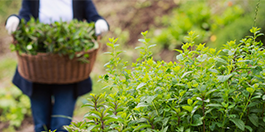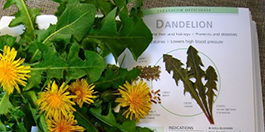Menopause
Female babies are born with around two million immature eggs and they will produce no more after birth. Rather, these eggs are used throughout a woman’s fertile years and she will experience approximately 400 menstrual cycles during that time. As a woman ages the supply of eggs is diminished. Gradually the cycle slows down in mid life and no more eggs are released, enabling the menopause to take place.
When the ovaries stop releasing eggs this causes a decrease in the production of oestrogen and progesterone, which in turn leads to the end of periods. This drop in hormone levels produces a range of symptoms, not least hot flushes, insomnia, aches, depression, poor memory and weight gain. It is common for women to experience a variety of symptoms for some years prior to the menopause and this is called the peri-menopause phase (sometimes referred to as the pre-menopause).
Women are said to have reached the menopause when a year has elapsed since their last period. As hormone levels stabilise, the symptoms disappear and many women feel better than they have in years as they enter the post-menopause phase. For others the loss of hormones can unduly de-stabilise their lives. The loss of oestrogen and progesterone can have an effect on the bladder, vaginal tissue, bone density, mental balance and more. These symptoms and others, if unsupported with herbs, can make post-menopausal life very miserable for some women.
In Germany 70 per cent of physicians successfully prescribe herbal remedies for the peri-menopause, menopause and post-menopause instead of using hormone replacement drugs. This trend for using herbs to support the menopause is an increasing one in Britain.
Common symptoms of peri-menopause & menopause
- Irregular periods: They may become shorter or longer, heavier or lighter and irregular.
- Hot flushes: This is a sudden feeling of heat in the upper body or all over the body causing the face and neck to appear flushed. This heat intensity can be followed by a cooling chill as the body’s thermostat kicks in to cool the body down.
- Night sweats: These are severe hot flushes, which can leave a woman drenched in sweat.
- Insomnia: Research shows that 30-65 per cent of menopausal women experience insomnia. Causes may include night sweats or anxiety.
- Vaginal and bladder changes: When oestrogen diminishes, vaginal tissues may lose lubrication and elasticity, making intercourse uncomfortable or painful. Low oestrogen levels may also increase vulnerability to urinary infections.
- Stiffness and aching body: A once agile woman can become increasingly achy and stiff.
- Lack of libido: Loss of sexual desire or an erratic sex drive can also occur. However, the menopause should not mean the end of an active sex life and difficulties can be overcome.
- Poor memory: A woman may become absent minded or find it extremely difficult to retain information.
Don’t forget to exercise
Regular exercise will help strengthen the bones and reduce the risk of osteoporosis. It may also have other benefits for symptoms: in one study, half of menopausal women who followed a resistance-training programme for eight weeks said they had fewer hot flushes and headaches, were less stressed and had a higher sex drive.
Healthy eating
In her book Healthy Eating For The Menopause (Kyle Cathie), Dr Marilyn Glenville – top women’s nutritionist and colleague of herbalist Jill Davies – recommends the following tips:
- Eat plenty of fruit and vegetables.
- Eat complex carbohydrates – whole grains like brown rice, oats and wholemeal bread.
- Buy organic where possible.
- Eat foods rich in phytoestrogens (naturally occurring plant nutrients that exert an oestrogen-like action on the body) including chickpeas, lentils, garlic and celery.
- Eat foods rich in omega-3 fatty acids such as oily fish, nuts, seeds and cold-pressed seed oils.
- Reduce your intake of saturated fat.
- Drink plenty of fluids.
- Reduce your intake of caffeine and alcohol.
- Avoid sugar, on its own and hidden in foods.
- Herbs: “Vitex & Black Cohosh Formula” has the effect of “topping-up” falling hormone levels. It can be used throughout all three stages of the menopause (see below) to help with the ever-altering list of symptoms associated with each menopause phase.
There are three stages of menopause:
These are peri-menopause (sometimes referred to as pre-menopause), menopause, and post-menopause. Medically speaking, menopause is defined as the last menstrual period, or the cessation of menstrual bleeding. The transition to menopause is known as peri-menopause and may last as long as 8 to 15 years. Post-menopause is considered to start approximately one year after menopause has occurred. Herbs such as agnus castus and black cohosh combined will greatly help all three stages.
Contrary to common belief, most women’s oestrogen levels remain relatively stable during peri-menopause or may even increase slightly. On the other hand, progesterone levels begin to fall in peri-menopause. The result is a condition called oestrogen dominance and it is this that can cause a myriad of uncomfortable symptoms similar to PMS, only many times more severe. Progesterone has many important functions. For example, it builds up the uterine lining during menstruation, and is involved in balanced blood clotting, blood sugar regulation, healthy bone formation and fat metabolism. It is important that women try to ensure progesterone levels remain as stable as possible. If oestrogen dominance is established, phytoestrogenic herbs like red clover can be the worst thing to take as they will exacerbate symptoms (e.g. hot flushes).
During post-menopause there is a gradual decline in levels of sex hormones (oestrogen and progesterone) produced by the ovaries. However, the adrenal glands also produce some sex hormones throughout a woman’s lifetime, including after menopause. If, however, the adrenals are exhausted, they will not be able to secrete their normal quota of hormones, meaning that levels decline further than they should. Siberian ginseng herb and/or EnergiRevive Powder (which contains Siberian ginseng) can greatly support this situation.
Vaginal dryness and incontinence are two of the most distressing symptoms of the post-menopausal phase. But the drop in oestrogen can also have other, less immediate effects. Oestrogen has protective functions for the heart and the bones that are therefore diminished when levels drop after the menopause. In relation to the heart, oestrogen actually improves blood flow to the coronary arteries; when levels decline after menopause, women have a rapid increase in the risk for coronary heart disease that then equals that of men. Women need to manage this higher risk of heart disease, as well as blood sugar disturbances and osteoporosis if they are to remain strong and healthy into old age.
Anything that keeps sex hormones functioning for longer will also help to reduce the risk of other diseases and conditions. We have mentioned some areas that need special attention but there is much that can be done to stay healthy in other areas that start to decline with hormone loss and age. We emphasise a healthy diet, cleanses and herbs that when combined may reduce the risk of colorectal cancer, improve cognitive function and short-term memory, decrease the risk of tooth loss and low bone density, minimise cataract formation, and even macular degeneration (the most common cause of blindness over age 80). Remember also that oestrogen tends to lower LDL (bad) cholesterol and raise HDL (good) cholesterol in the blood. When levels drop it is prudent to make definitive changes to the diet and support the liver with herbs and cleanses.
Perhaps the most important factor for women seeking herbal hormone support during and after the menopause is the issue of their femininity. The menopause can cause a reduction in breast size and increased drooping, an increase in facial hair and a deeper voice, all of which can be upsetting. Thinning skin and mucous membranes alter visual appearance, and vaginal dryness can make sexual intercourse painful, thereby adding to the feeling of overall negative change and challenge. Add to this such psychological symptoms as mood swings, irritability and trouble concentrating and it’s easy to see why women are less than thrilled by the prospect of falling hormone levels for the remainder of their lives. On many levels, women now expect to remain younger for longer compared to earlier generations. In the post-menopause phase, don’t forget to continue to take the very same herbs you did for the peri-menopause and menopause. You can continue to take them as long as you remember!
The most important way to reduce the post-menopausal risks of heart disease and osteoporosis is exercise. Walking, swimming and other activities can dramatically lower the risk of cardiovascular disease, while resistance training such as light weights helps build muscle and supports bone strength. Plants containing phytoestrogens and plants able to activate the pituitary gland to produce oestrogens are also useful to prevent bone loss.
Additional help is available by phoning the free product advice line at Herbs Hands Healing between the hours of 9.00am to 1.00pm. Tel: 01379 608201.
If you would like to learn more about herbs and receive updates about our products and services please take the time to subscribe to our newsletters.
Learn more about Dr. Richard Schulze’s Superfood Plus and why we believe this is such a wonderful food by following this link on our website, where extensive information is available. Also please visit our Superfood Plus facebook page for articles and current news.
To learn more about natural healing for this and other ailments, visit Dr Schulze’s blog.
If you would like to see videos of Jill Davies showing you plants growing in their natural settings and discussing their medicinal attributes then visit us on facebook. You can also explore additional herbs and their traditional uses by linking to Herbs Info & Photo Gallery and Herb Profiles. Useful additional information can also be found at the Herbs Hands Healing information pages on Detox & Cleansing and Natural Healing.






